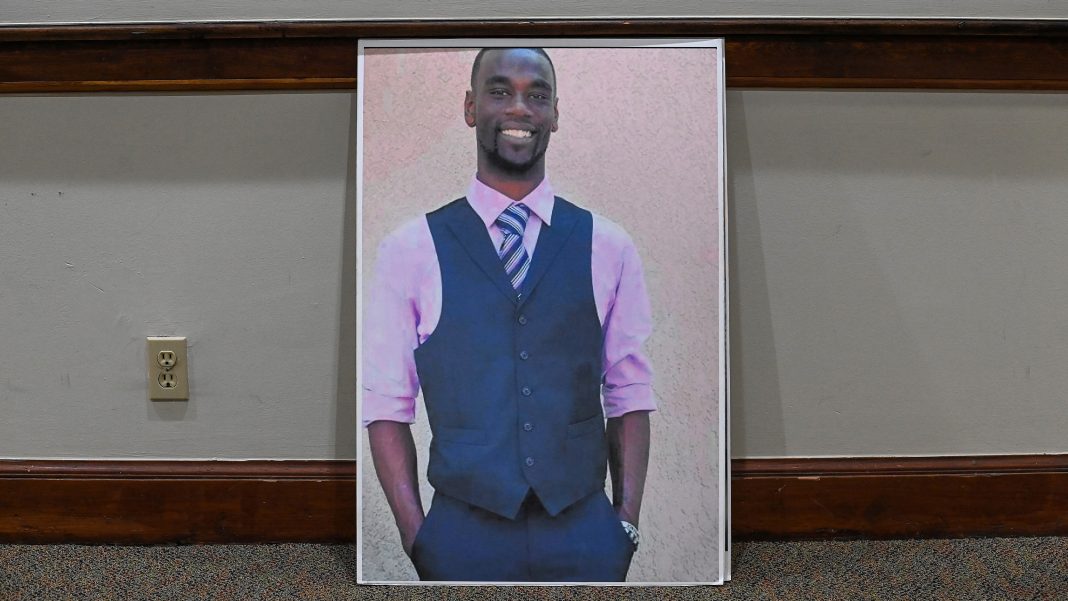In a significant and sobering chapter of the ongoing dialogue surrounding police brutality in America, a federal jury has rendered its verdict in the trial of three former Memphis police officers involved in the tragic death of Tyre Nichols. The case has not only drawn national attention but has also raised critical questions about police conduct, accountability, and the systemic issues that allow such tragedies to occur.
Tyre Nichols, a 29-year-old Black man, died three days after being violently beaten by officers following a traffic stop on January 7, 2023. Initially pulled over for allegedly driving recklessly, Nichols fled the scene, an action that would set off a chain of events leading to his untimely death. Prosecutors argued that the officers—Demetrius Haley, Justin Smith, and Tadarrius Bean—were driven by a desire to punish Nichols for fleeing, resorting to excessive force that ultimately violated his civil rights. This assertion was juxtaposed against the defense’s claim that the officers were merely following departmental protocols.
The charges against the trio included excessive use of force, unlawful assault, and a failure to intervene when witnessing the assault, alongside a failure to render medical aid to Nichols, who was left injured and unattended. Each of these charges carries a maximum penalty of life in prison, underscoring the severity of their actions as defined by the U.S. Department of Justice.
In a heart-wrenching turn of events, two other officers involved—Emmitt Martin III and Desmond Mills Jr.—pleaded guilty to federal charges, offering testimony that painted a disturbing picture of the incident. Martin admitted to feeling “revenge” after Nichols fled, acknowledging that he kicked and punched him multiple times. Meanwhile, Mills expressed deep remorse during his testimony, stating, “I made his child fatherless. I’m sorry… I know ‘sorry’ won’t bring him back, but I pray his child has everything he needs growing up.” Such admissions highlight not only the emotional toll on the officers involved but also the profound impact on Nichols’ family, who are now left to navigate life without their loved one.
As the trial unfolded, federal prosecutor Kathryn Gilbert delivered a powerful closing argument, asserting that the officers “wanted it to be a beatdown,” effectively challenging the defense’s narrative that they acted within the bounds of police policy. This moment crystallized the jury’s role as the last line of defense against potential impunity, with Gilbert reminding them, “You are what stands between them and getting away with it.”
The incident has sparked outrage and calls for systemic reform, particularly in Memphis, where the police unit involved—the SCORPION unit—was disbanded in the wake of Nichols’ death. The unit had been tasked with crime suppression, yet its dissolution raises pressing questions about the effectiveness and oversight of specialized police units across the country.
The fallout from this tragic event extends beyond the courtroom. The medical examiner’s report indicated that Nichols died from brain injuries resulting from blunt force trauma, a tragic outcome that has fueled protests demanding justice and accountability. Memphis Police Chief Cerelyn Davis has stated that she could not substantiate the initial claim of reckless driving, further complicating the narrative surrounding Nichols’ arrest.
As the nation grapples with these issues, experts emphasize the necessity of comprehensive police reform. In a recent study published in the Journal of Police Science and Management, researchers found that departments with transparent accountability measures and community oversight experience fewer incidents of excessive force. This suggests that systemic change, rather than isolated punitive measures, may be essential in preventing future tragedies.
In conclusion, the verdict against the former officers marks not just a legal milestone but a moment of reflection for society as a whole. It compels us to confront difficult questions about race, justice, and the ethical responsibilities of law enforcement. As communities demand change, the legacy of Tyre Nichols serves as a poignant reminder of the urgent need for reform and the collective responsibility we share in ensuring that such violence is never repeated.

